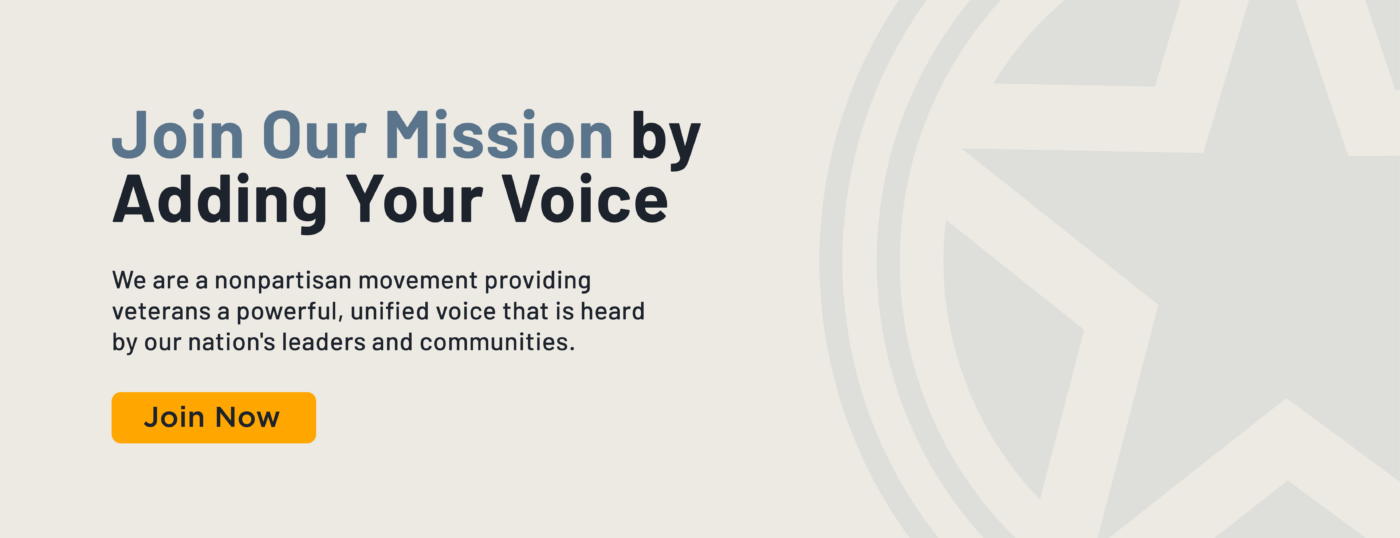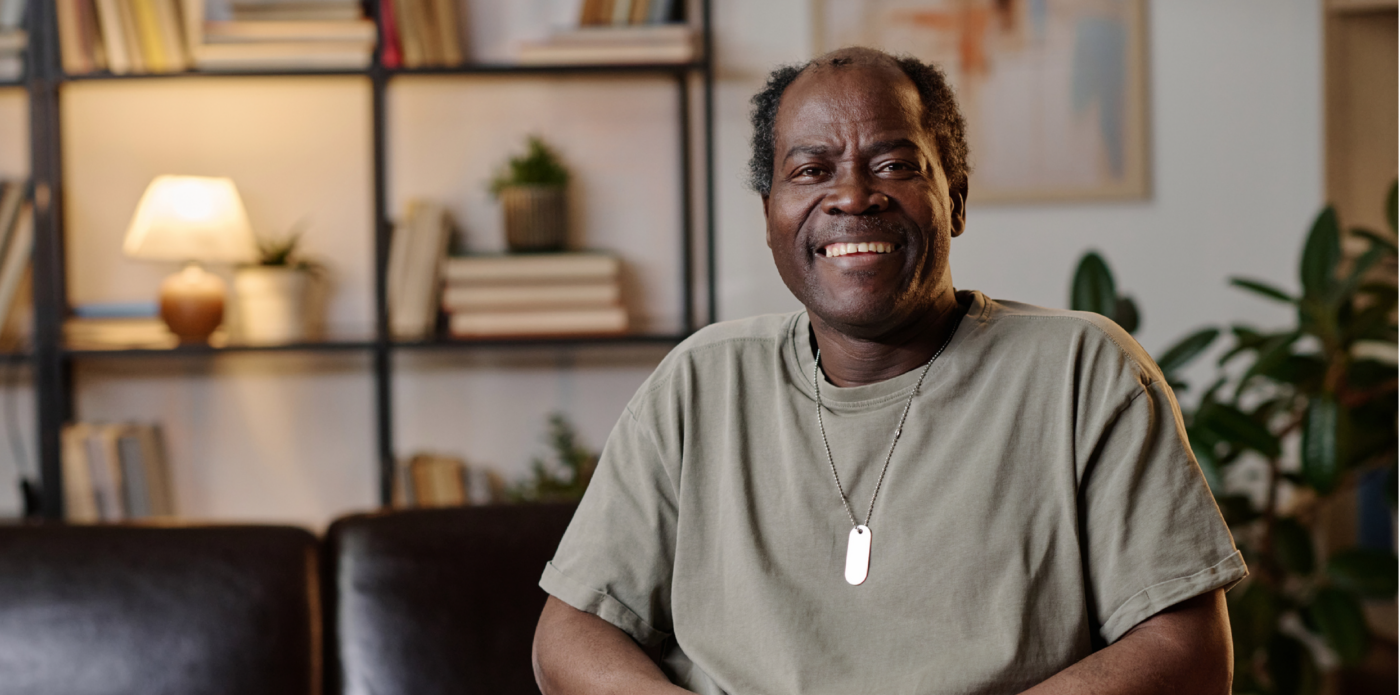
A lot happened in 2024: Americans elected a new president, cheered on their athletes in the Paris Olympics, and parts of the country grappled with major hurricanes and natural disasters. These events stirred a wide range of emotions from excitement to disappointment, hope to uncertainty – but above all, unity.
Much happened for veterans this year as well. Veterans and their families navigated a complex and evolving landscape, marked by progress and setbacks on policy issues, while navigating shifts in mental and physical health, the transition to civilian life, employment and job retention, finances, and more. This article will provide a comprehensive look at the state of veterans in 2024, reflecting on the progress and hindrances of the past year, while identifying key needs and opportunities as we look toward the future.
Mission Roll Call is dedicated to identifying critical areas where veterans need support and advocating on behalf of American veterans and their families to lawmakers. Through our “State of” research articles, we spotlight areas that are positively and negatively impacting the veteran community and paint a path forward. In 2024, we have detailed the State of Veteran Suicide, Veteran Post Traumatic Stress, Veteran Homelessness, Rural and Tribal Veterans, Veteran Mental Health, and Military Families.
As we approach the end of 2024, we want to reflect on the successes that lawmakers and organizations have had in fighting for veterans, as well as the challenges and priorities that remain ahead in 2025 and beyond. This article will explore the important work that veterans, volunteers, advocates and policymakers not just at Mission Roll Call, but nationwide, are doing for the benefit of all veterans and their families.
The State of Veterans Health & Wellness
Veterans face many hardships after their time in service – and for many, chronic physical ailments and pain are among them. Recent data shows veterans have reported nearly twice as much back and neck pain than nonveterans. Musculoskeletal disorders, traumatic brain injuries, and chronic fatigue syndrome were also found to be three to six times higher in veterans than nonveterans. Veterans not only experience chronic pain at a greater rate than the general population, but managing this pain is made more challenging by the barriers to VA healthcare – such as eligibility requirements, heightened wait times, and far travel in rural areas.
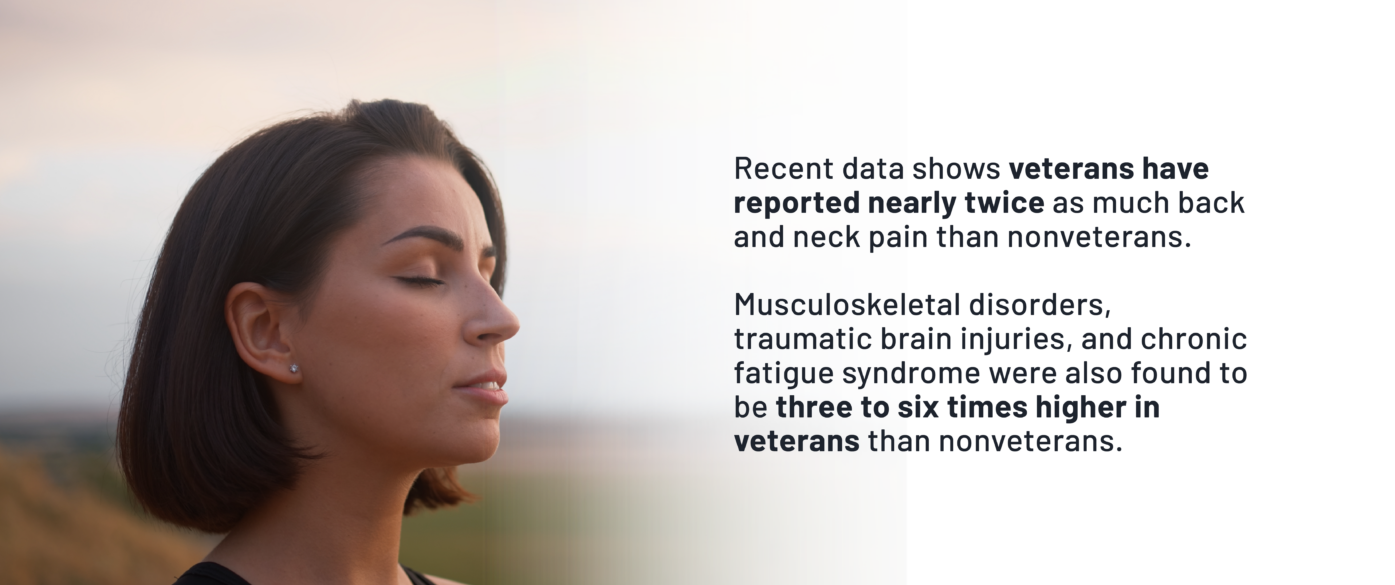
However, veteran health and wellness extend beyond physical disabilities and pain. The disproportionate rate of mental health issues among veterans is well-documented, including higher than average rates of depression, post-traumatic stress (PTS), substance abuse disorders (SUDs), traumatic brain injuries (TBIs), anxiety and insomnia. Following the Global War on Terror (GWOT), 15% of all military personnel who served in Iraq or Afghanistan experience post-traumatic stress each year.
The latest data shows that 38% of veterans had a code on their medical record for a common mental health disorder. This number does not include undiagnosed mental health conditions, which means the actual number is likely much higher especially due to the stigma around seeking mental health care in the military. These issues are an unfortunate result of the unique challenges and trauma some veterans face during and after military service.
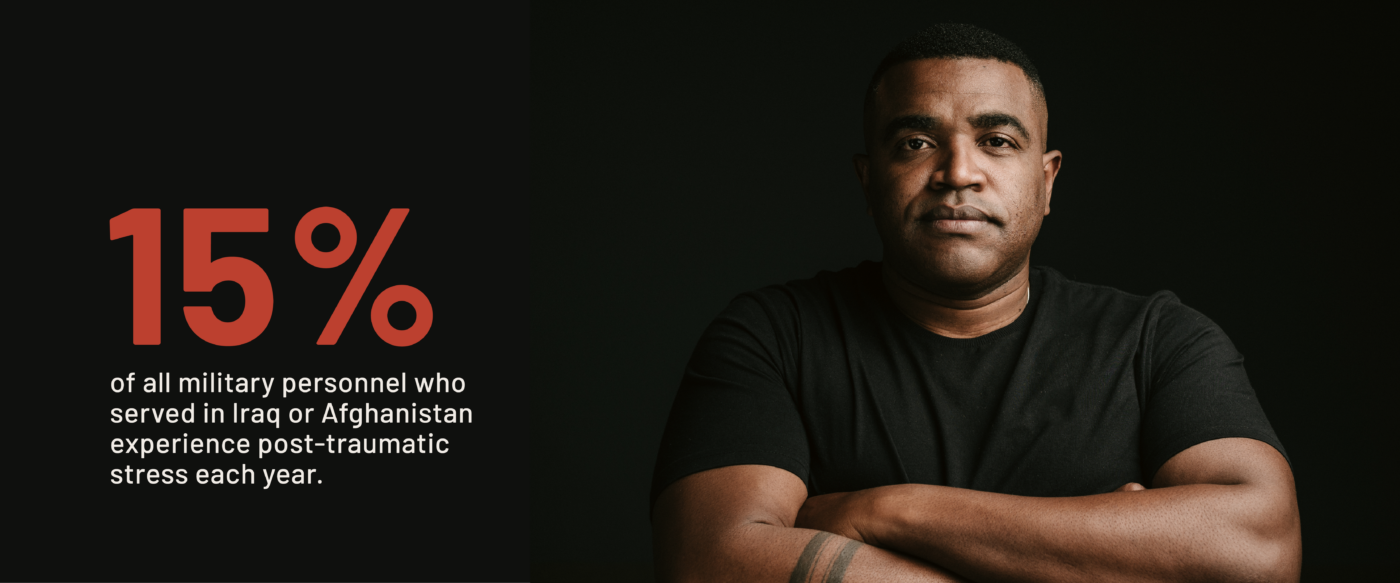
Promisingly, the Department of Veterans Affairs (VA) and other organizations have made strides this year in securing better physical and mental healthcare resources for the veteran community. Earlier this year, the PACT Act ensured that veterans who were exposed to toxins or hazards while serving in the military are eligible to enroll in VA healthcare without first applying for benefits. This includes veterans who served in the Vietnam War, the Gulf War, Iraq, Afghanistan, the Global War on Terror, or any other combat zone after 9/11. Additionally, the VA has taken strides in recent months to provide faster, simpler access to residential treatment through a centralized screening process for mental health residential rehabilitation treatment programs (RRTPs).
Organizations are also beginning to invest in innovative research, such as the DoD and VA studying the potential benefits of psychedelics to treat PTS and depression. Additionally, other organizations diligently coordinate efforts to connect veterans with resources and support. For instance, America’s Warrior Partnership has social workers who man a 24/7 support line, specializing in connecting veterans and their families with a range of services that go far beyond mental health care. From helping veterans navigate the often complex VA system to ensuring their basic needs are met, AWP is working to build a safety net that addresses every aspect of a veteran’s life.

These developments, alongside other recent policies such as the Hannon Act and Fox Grant, represent meaningful strides for veteran healthcare and mental health treatment. The continued advocacy of citizens, veterans, and organizations such as Mission Roll Call has enabled us to make this progress and will be necessary going into 2025.
Financial Stability and Economic Opportunities
After their service, many veterans face challenges in finding employment due to a lack of resources, difficulties in translating military skills to civilian jobs, and the emotional toll of reintegration. A poll conducted by Mission Roll Call earlier this year found that only 15% of veterans felt that the military’s transition assistance program adequately prepared them for entering the civilian workspace. As of this October, the veteran unemployment rate was up to 3%, increasing from 2.8% the previous month and up from 2.9% the prior year. In addition, a 2022 survey from the Wounded Warrior Project found 64% of polled veterans “reported that they did not have enough money to make ends meet at some point in the past 12 months.”
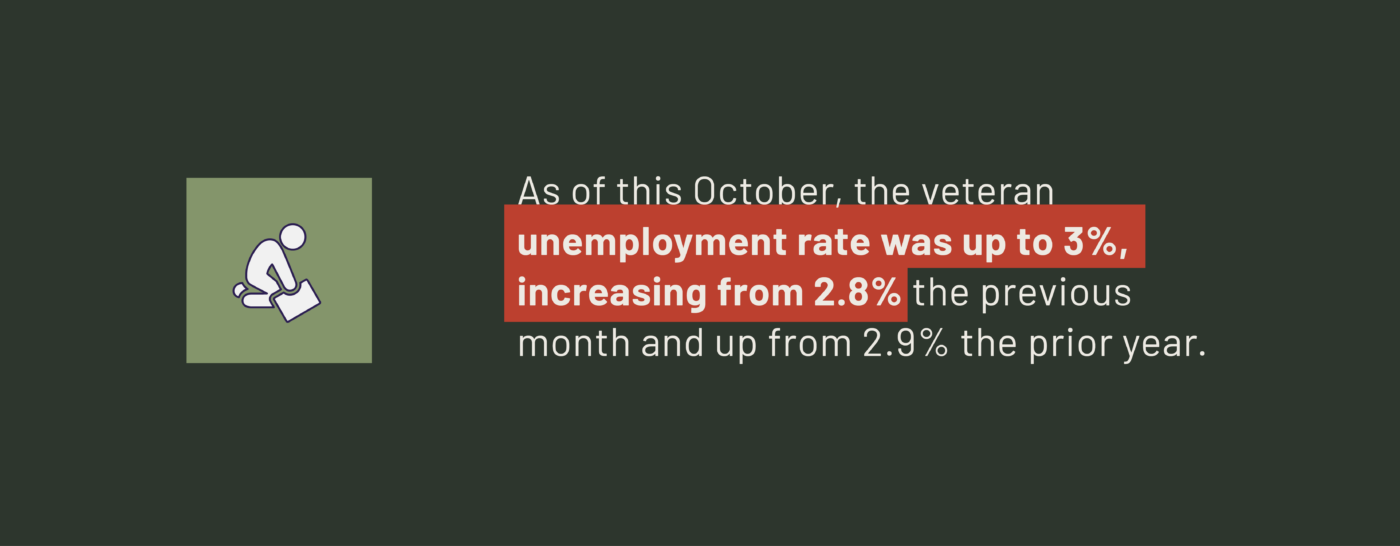
This financial instability can exacerbate stress, mental health issues, instability – and in more dire cases, worsen the veteran homelessness crisis. Although they only represent around 6% of the total U.S. pop house at least 47,925 homeless veterans and ensure that at least 95% of the veterans housed did not return to homelessness during that same year.
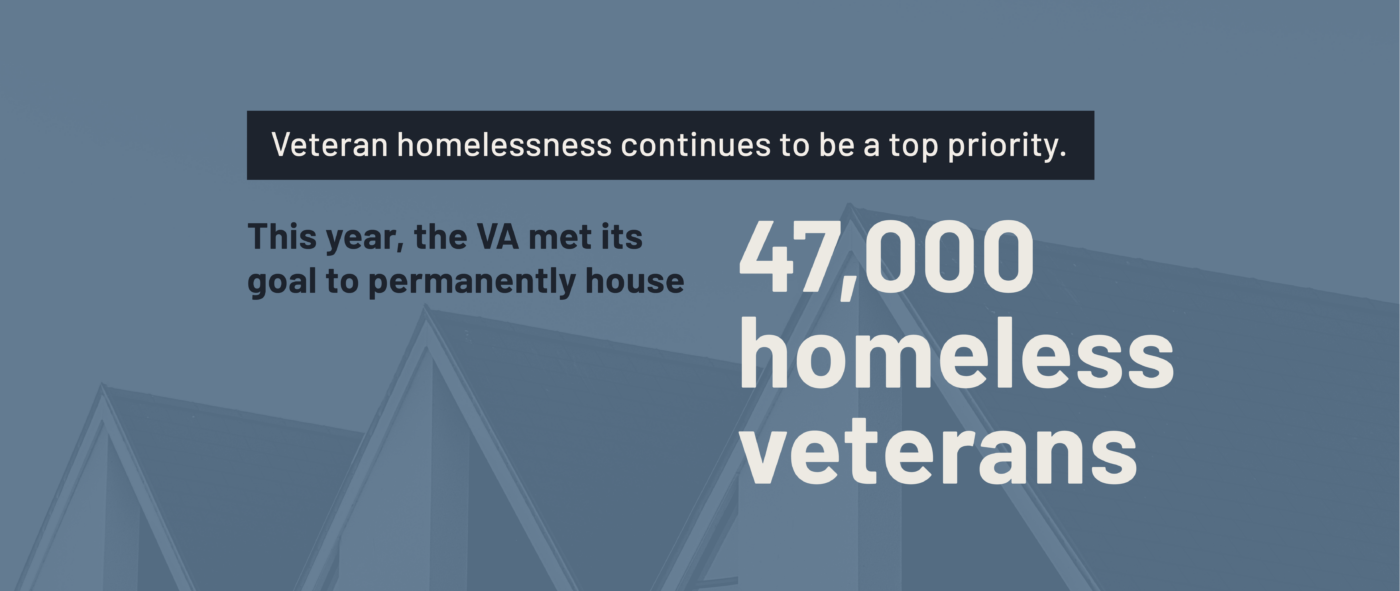
For veterans and their families who may be struggling financially, organizations such as Semper Fi & America’s Fund, America’s Warrior Partnership, and Military One Source have comprehensive resources that provide access to information on family life, deployment, benefits, transition programs, counseling services, and more. Additionally, the Army Emergency Relief, the Navy-Marine Corps Relief Society, and the Air Force Aid Society provide financial aid, grants, and interest-free loans.
For veterans struggling with homelessness, HUD-VA Supportive Housing (HUD-VASH), Homeless Patient Aligned Care Teams (HPACTs), and VA’s Legal Services for Veterans (LSV) offer case management, health care, case management, and legal support for veterans, respectively.
Family and Community Support:
The unique challenges that veterans face often extend to their families as well. Today, there are more than 2.6 million military families in the United States. These families often have to navigate frequent relocation, military spouse underemployment or unemployment, and difficulties finding childcare. These issues can be compounded when families are stationed far away from friends and family that act as a support network, and when the active duty spouse is deployed for weeks or months at a time, leaving the other parent to make ends meet.
In recent years, we’ve seen a renewed investment in supporting military families beyond the active duty member or members. The Military Spouse Employment Act was introduced in 2023 to aid military transitions by providing more flexibility for military spouses in remote work. Additionally, states are invested in supporting military families. For instance, under Governor and U.S. Army veteran Wes Moore, Maryland passed the Families Serve Act of 2024, which “authorizes private employers to grant a preference in hiring and promotion to active duty military spouses.”
Veterans in Rural & Underserved Communities:
According to the United States Department of Veterans Affairs (VA), nearly one-quarter of all veterans live in rural areas, a significant proportion of the veteran community. The states with the highest concentration of veterans are Alaska, Wyoming, Virginia, Maine, Montana, and South Carolina. These veterans face unique challenges in receiving the care and support they deserve.

For example, rural veterans are more likely to be diagnosed with critical health conditions such as diabetes, high blood pressure, obesity, heart conditions, and substance abuse disorders. However, these veterans often have limited access to healthcare providers and telehealth services, making it difficult to receive essential treatment.
Similarly, tribal veterans are an essential part of our nation’s troops that are often underserved. As of 2024, 29 Native Americans have been awarded the Medal of Honor and serve at higher rates than any other group.
Mission Roll Call has and continues to work towards improving support for these groups. In 2024, MRC focused on identifying various nonprofits serving rural veterans, as well as advocating for legislation that will improve the lives of veterans in rural communities and across the nation. In addition, organizations including the VA have taken a more intentional approach to reaching these veterans, including hosting virtual outreach symposiums. Additionally, many bills that would benefit rural veterans in particular were introduced – such as the Rural Veterans’ Improved Access to Benefits Act of 2024, and the Rural Veterans Transportation to Care Act – but in 2025, we must continue our advocacy efforts to get these and other important legislative wins on the books. All the while, MRC is committed to connecting with rural veterans themselves to hear where their priorities lie and tailor our advocacy efforts to speak into these issues and priorities.
Advocacy Efforts and Legislative Changes
Legislative Wins:
In 2024, there were several important pieces of legislation discussed that were focused on improving the lives of veterans. For example, in September, the House of Representatives (HOR) passed a bipartisan bill to provide $3 billion in mandatory funding for VA compensation, pensions, and readjustment benefits. The bill will help ensure the VA continues delivering critical support to veterans in need.
Similarly, Arizona Representative Juan Ciscomani and 54 House co-sponsors introduced H.R. 8371, the Senator Elizabeth Dole 21st Century Veterans Healthcare Benefits and Improvement Act to the House of Representatives in May. Mission Roll Call has focused advocacy efforts for this bill as it contains dozens of important provisions ranging from health care and benefits to homelessness and VA oversight. Many of these provisions were adopted in separate legislation during the 118th Congress and sent to the President for signature in late 2024.
Other notable legislative developments MRC was proud to support in 2024 include the passing of the PACT Act on March 5 and Senator Moran’s Amendment to Protect Veterans’ Second Amendment Rights on March 11. The PACT Act significantly expanded healthcare access for veterans exposed to toxins and other hazards during their service. Similarly, the Kansas Senator’s amendment protects veterans from losing their right to purchase or own firearms when they receive help managing their VA benefits.
Finally, in 2024, MRC found that suicide prevention and access to care were top concerns among the veteran community. The following legislation will also be important to track in the years following as they directly impact these issues:
- FOX Grant Program
- VCL Hotline
- SAVES Act
- Not Just a Number Act
- HOME Act
- HR 7347 – Psychedelics
- HOPE Act
- Veteran Care Act

Advocacy Milestones:
This year, MRC and several other organizations dedicated to serving veterans and military families worked together through the Veteran Service Organization Coalition. Each organization serves to address veterans’ needs through mental health support, employment services, opioid alternatives, civic engagement, and more. By working together, we were able to amplify our impact and prioritize veterans in need.
MRC also recognizes the unique value of veterans’ voices, which are sought out through frequent polling and elevated through advocacy efforts.
VA Improvements and Ongoing Challenges
Achievements in VA Services:
In 2024, the U.S. Department of Veterans Affairs (VA) announced it delivered a record for care and benefits to veterans, significantly exceeding last year’s totals. The Department largely attributed this great success to the passing of the PACT Act, which was the largest expansion of VA health care and benefits in generations. As a result, the VA claims that veteran trust increased by 25% since 2016. Today, more than 80% of veterans express trust in the VA’s support.
Beyond increasing trust, the VA’s expansion of benefits supported more than 50,000 veterans in mental health crises, 47,925 experiencing homelessness, 630,000 in need of dental care, and overall enrollment for VA healthcare saw a 37% increase from the previous year. The expansion provided significant support to veteran families and caregivers as well.
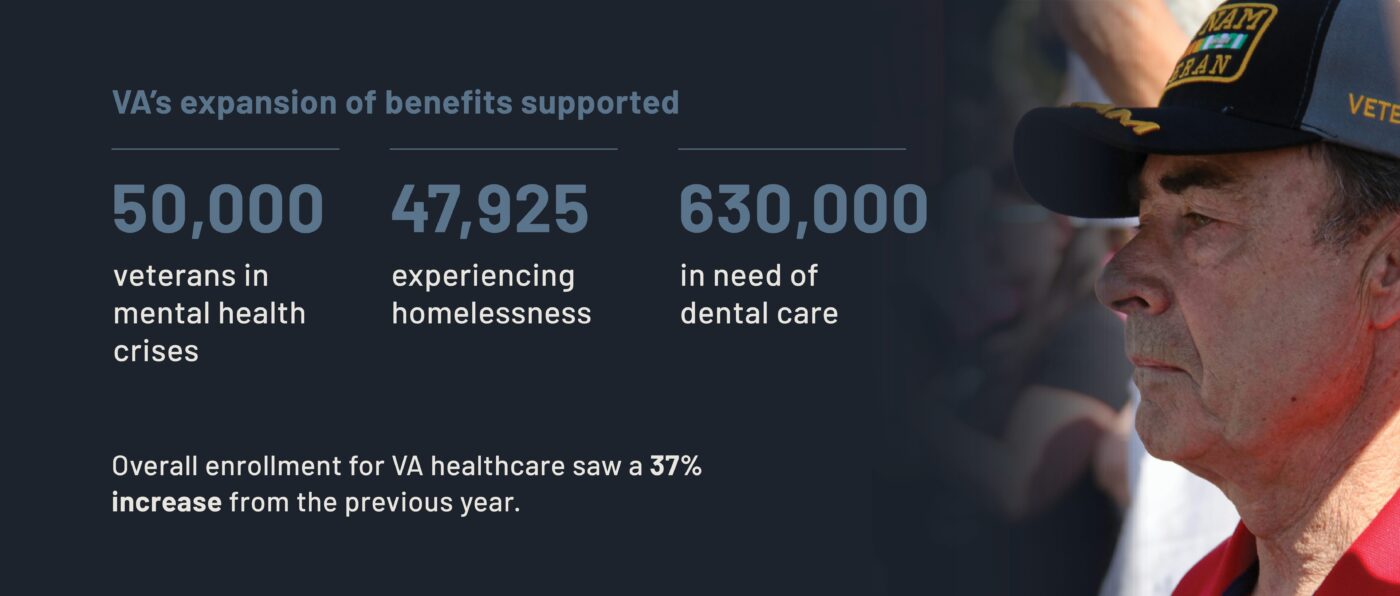
Additionally, the VA’s 2024 Equity Action Plan was a significant achievement for VA services this year. Released in February, the plan aims to improve disparities in the current benefits plan by increasing access for women veterans, people of color, LGBTQ+ veterans, and other marginalized groups. According to the VA, the plan will “work urgently to improve outcomes and eliminate disparities in Veteran benefits and health care; increase access to VA services; enhance economic security for all veterans, including historically underserved Veteran communities; listen to and learn from Veteran communities; and more.”
Remaining Challenges:
Despite significant improvements, the VA still faces many challenges in providing sufficient support to veterans in need. One of the foremost concerns lies in severe staffing shortages for Veterans Health Administration’s medical facilities across the nation. In 2024, the Office of Inspector General (OIG) reported 2,959 severe staffing shortages for the fiscal year. Although the count shows a 5% decrease from the previous fiscal year, the issue persists, causing delays in benefits processing and limited access to care.
Moreover, the OIG also found major problems with its new Electronic Health Record (EHR) since its launch four years ago. Between October 2020 and March 2024, the EHR experienced 826 “major performance incidents,” half of which occurred after the VA put all future EHR go-lives on hold. VA facilities experience outages that hinder clinicians’ access to patient records and therefore their ability to provide quality care.
Finally, despite having the largest VA budget in history in 2024, the department announced a significant funding shortfall in August. The VA claims the $9 billion shortfall is the result of an unexpected spike in benefit utilization, but failure to close the gap would leave millions without disability compensation and other necessary benefits.
Both the VA and MRC have called for Congressional action to address the issue. Whether more funding or increased accountability is necessary, Congressional action can help ensure that the historic levels of funding are translated to improved outcomes for the people it intends to serve.
Looking Ahead: 2025 and Beyond
Future Goals for Veteran Advocacy:
In 2025, MRC is committed to addressing critical veteran issues. Key priorities include advancing impactful policies, fostering new partnerships to enhance outreach, and conducting targeted polls to identify and address the most pressing challenges within the veteran community. Potential focus areas span housing stability, employment opportunities, mental health, and access to educational benefits. Through comprehensive advocacy efforts and community engagement, Mission Roll Call aims to ensure that veterans and their families receive the support, resources, and recognition they have earned.
Veterans’ Needs and Opportunities:
As Mission Roll Call advances its mission, there’s an ongoing need for collective action. Veterans and their families deserve unwavering support, whether through direct advocacy, volunteering, or engaging in service initiatives that restore a sense of purpose and community. We invite everyone to join us in shaping a future where veterans and their families receive the care, respect, and opportunities they have earned.
